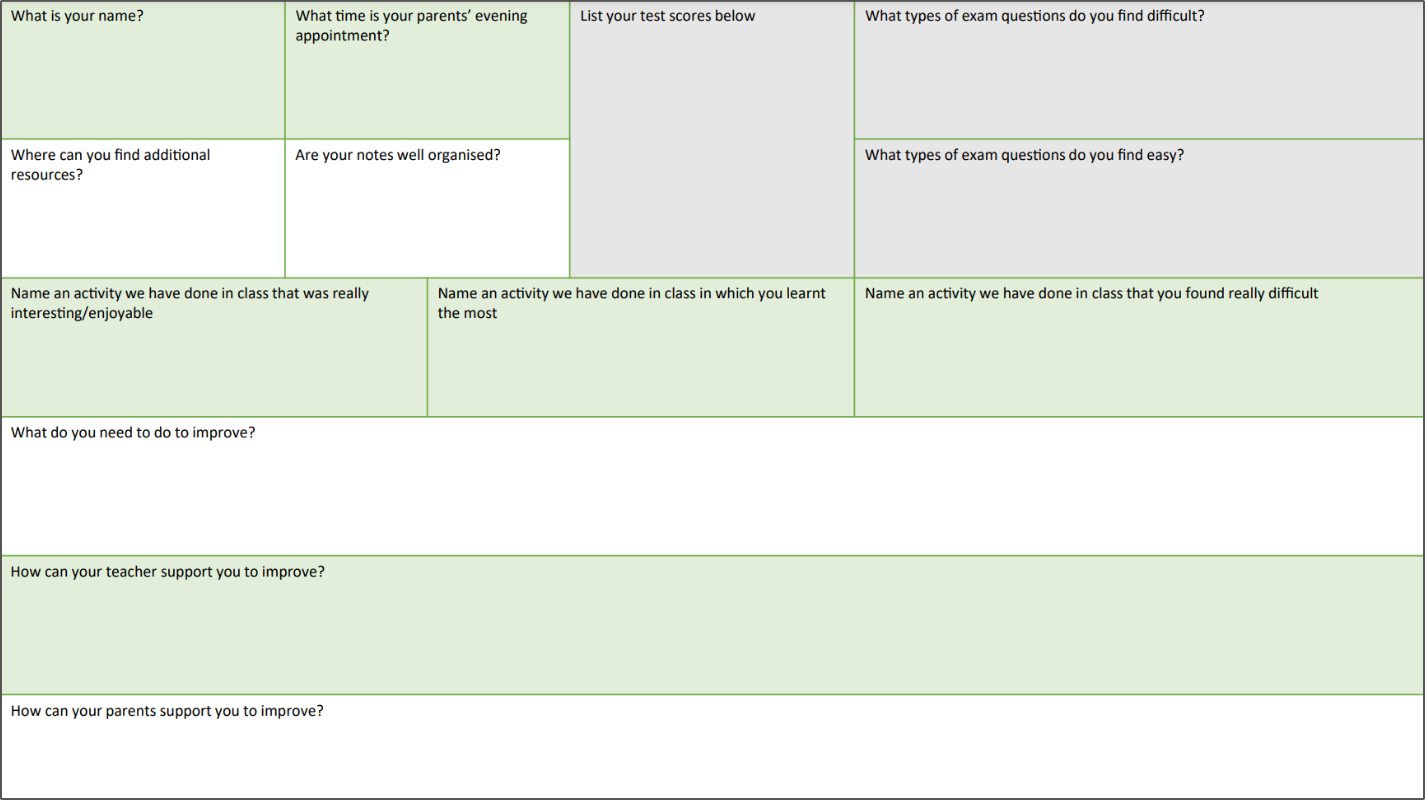Empowering Self-Regulated Learning

26 May 2023 • 3 min read
One of the notable recommendations by the EEF is to cultivate 'self-regulation' among students. In my practice, I've effectively integrated student reflection into my preparation for report writing and parents' evenings, fostering an environment that encourages students to plan, monitor, and evaluate their own learning progress.
For those unfamiliar with the term, 'self-regulation' refers to students' ability to understand and control their learning processes. It involves goal setting, self-monitoring, and self-evaluation – fundamental skills that empower students to take charge of their education. While this approach is highlighted for secondary science, the principles of self-regulation are universally applicable across all subjects, enhancing students' engagement and performance by developing an active, reflective approach to learning.
Typically, I schedule a lesson focused on reflection a week or two before the subject reports are due. This lesson is transparently added to our shared timetable, making students aware of the upcoming activity. During this session, we undertake a self-reflection task and a low-stakes level assessed task. We use accessible grade criteria to aid students' understanding, drawing inspiration from excellent resources like those available at Badger Learning.
The reflection sheet serves multiple purposes. It prompts students to compile their existing data, analyse their class performance, and plan subsequent steps. It also facilitates teacher feedback and provides space for requests from home, which often include requests for revision guides or additional resources.
To prepare for this exercise, I print a student reflection form for each student. You could also use an online survey to collect students' responses. Students are requested to bring any marked work or end-of-topic tests for reference. I also print out all their test results from our departmental spreadsheet.
During the lesson I engage with each student, helping them understand what to write and how to interpret their performance. Sometimes, modelling good responses is crucial. For instance, I might suggest, "If a student were struggling with some of the longer written answers, what advice would you give them to improve?" By the end of the lesson, I have an individualised reflection sheet and a piece of exemplar work from each student to refer to.
These reflection tasks are not only beneficial for students; they also enhance parent meetings and report writing. For parents' evenings, I print the reflection task onto an A3 sheet, which forms the basis for our discussion. This reinforces the students' ownership of their learning process and solidifies their commitments.
For report writing, I incorporate these insights along with my own feedback into Real Fast Reports. The platform then uses this collated information to quickly generate accurate, individualised reports, showcasing the progress and highlighting areas of development for each student.
Utilising this method empowers students, gives parents a clear view of their child's progress, and streamlines the report-writing process. This approach is a testament to how effective teaching strategies and smart technology like Real Fast Reports can make teaching more efficient and rewarding.
Raj Joshi is a physics teacher in South London. He tweets at @mrjoshiphysics.
